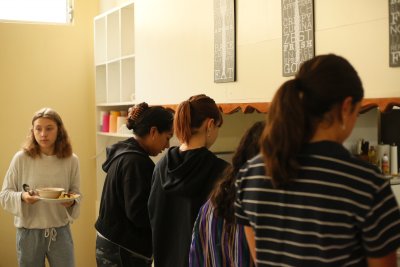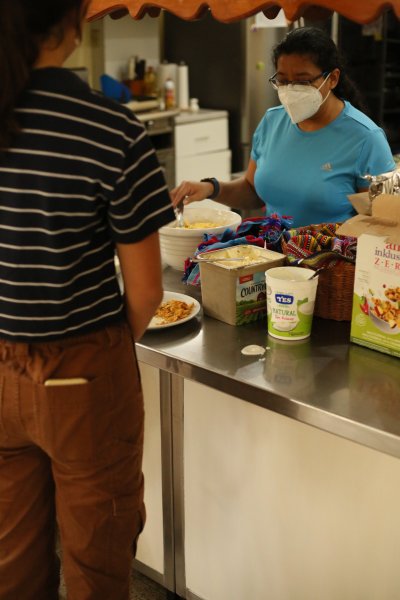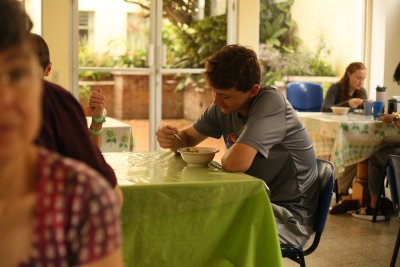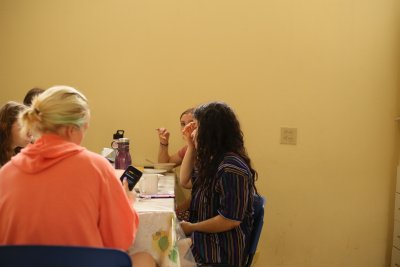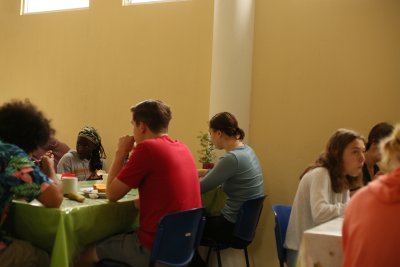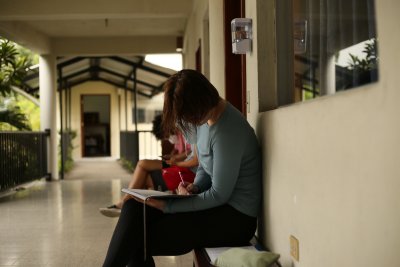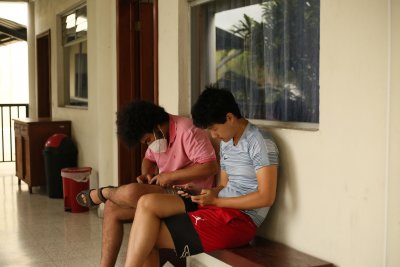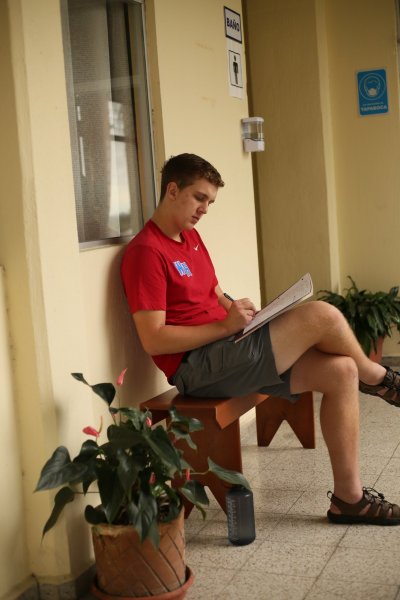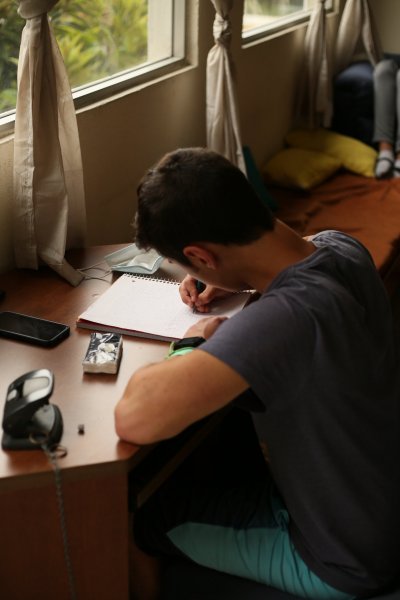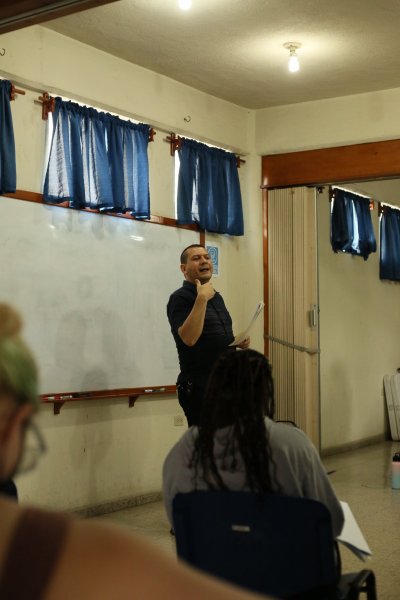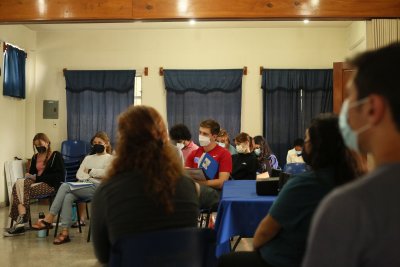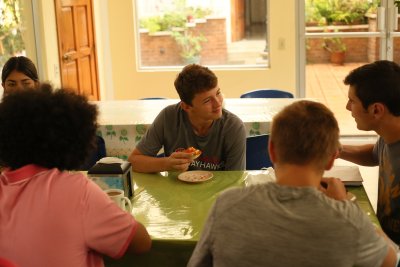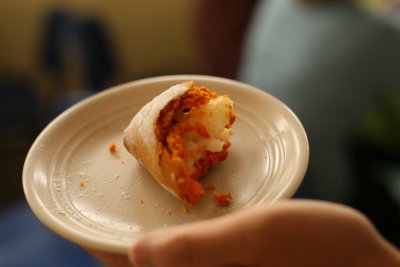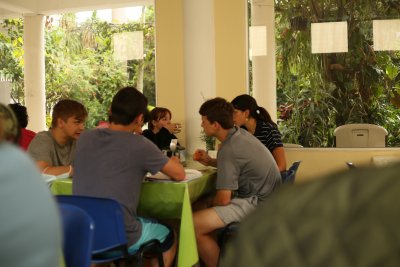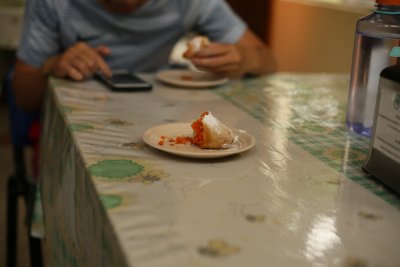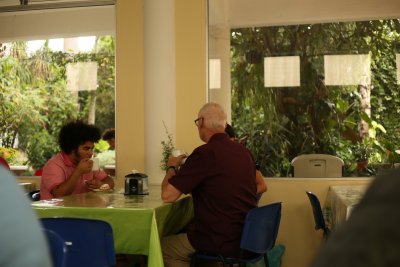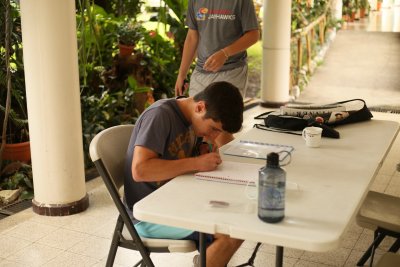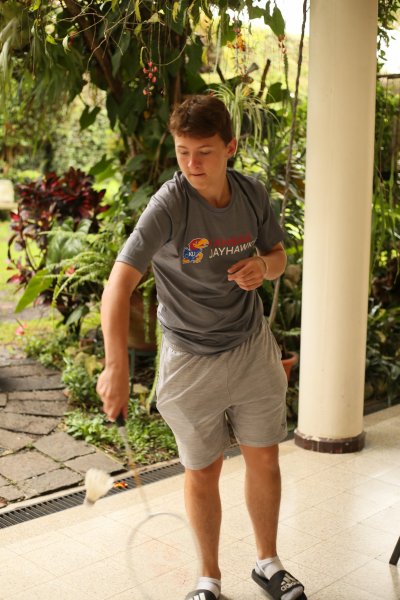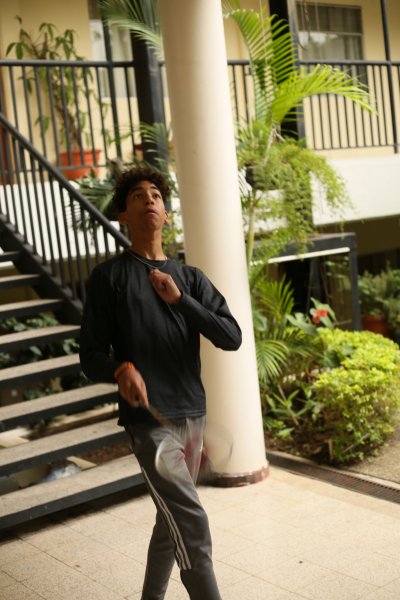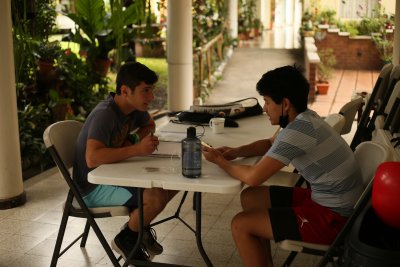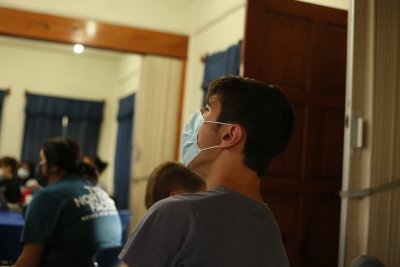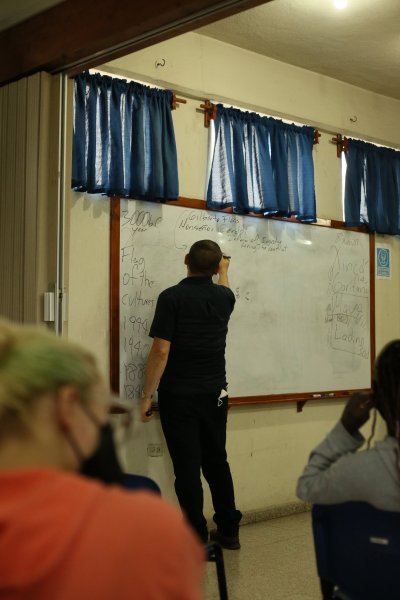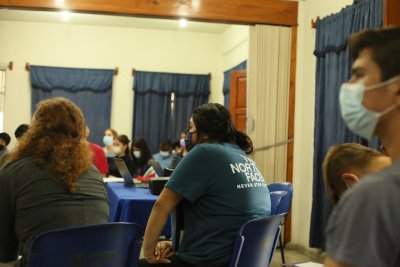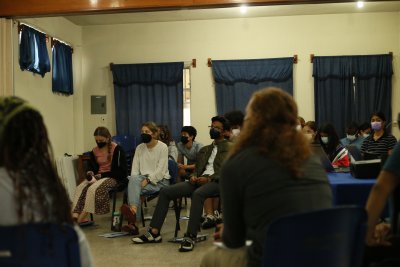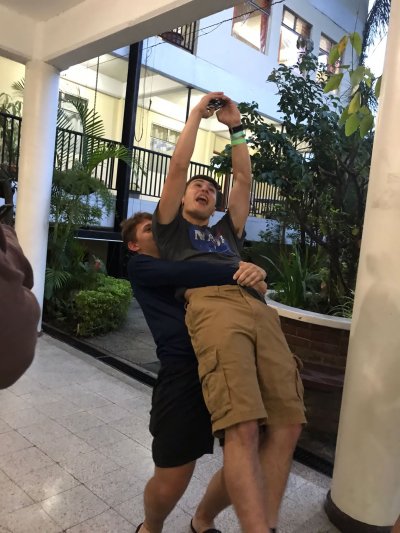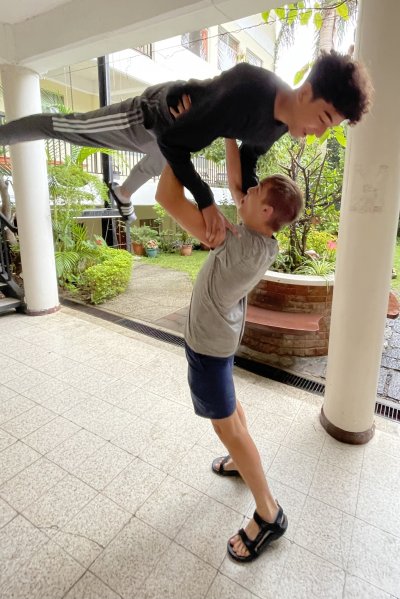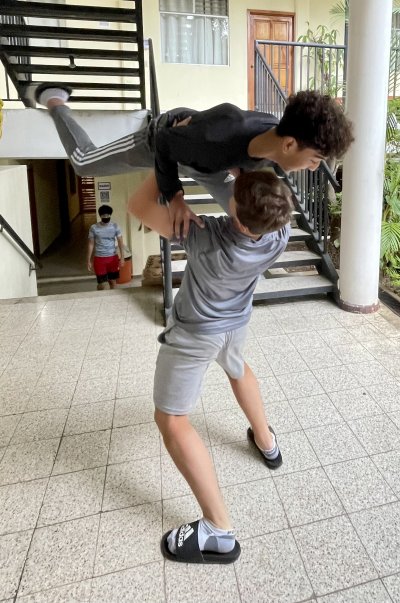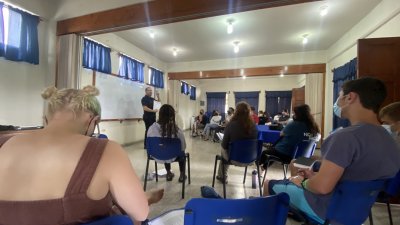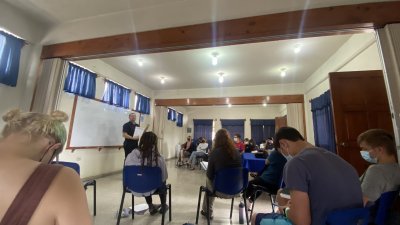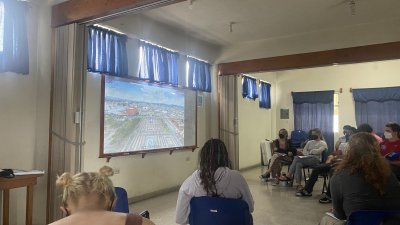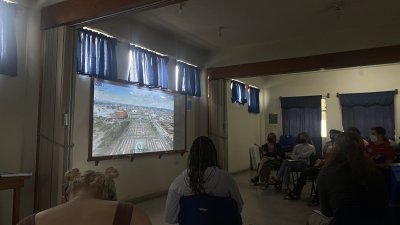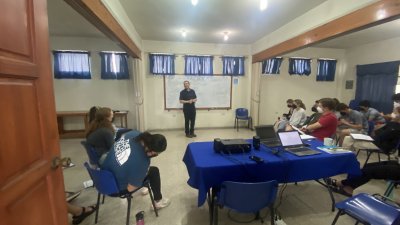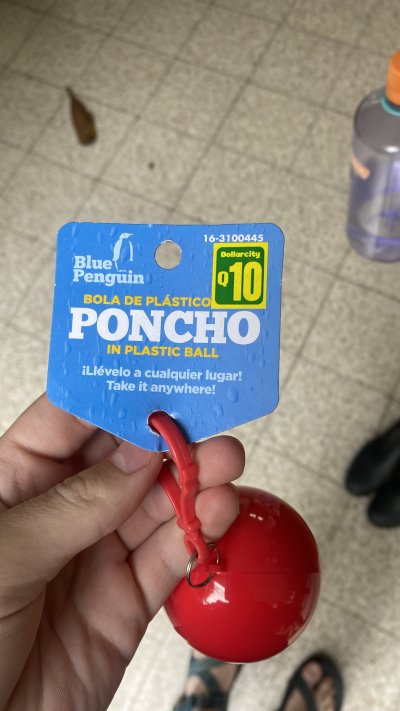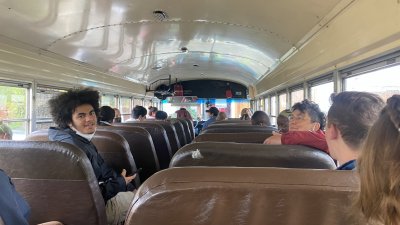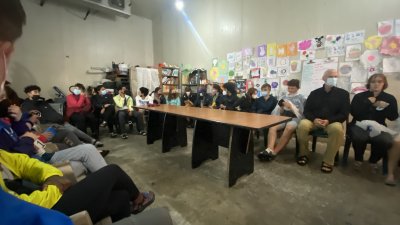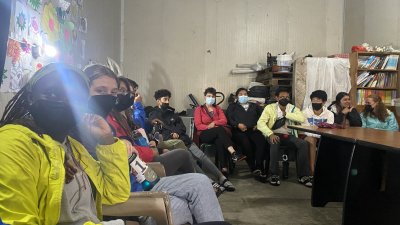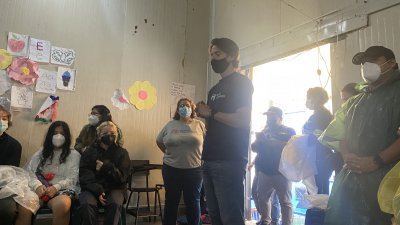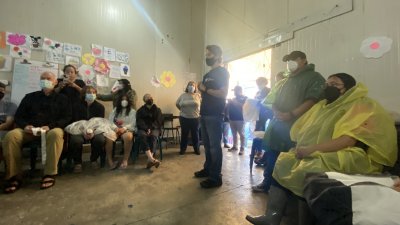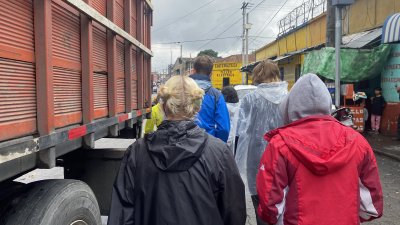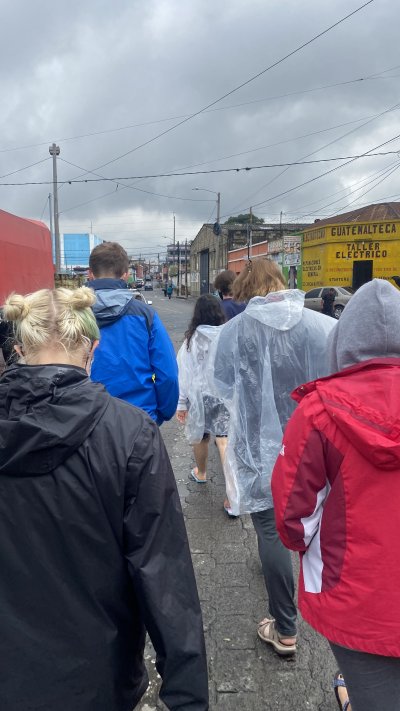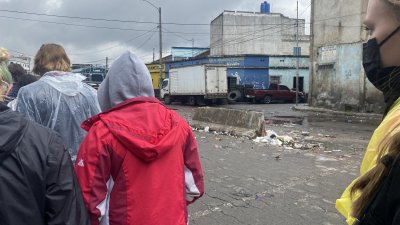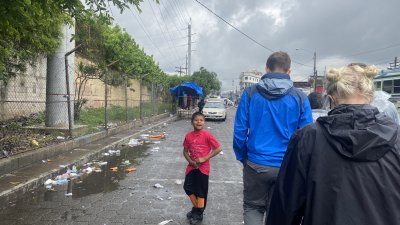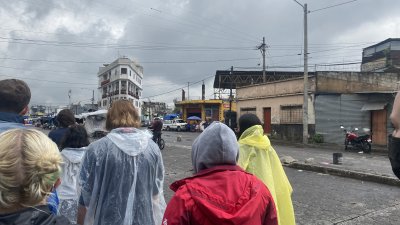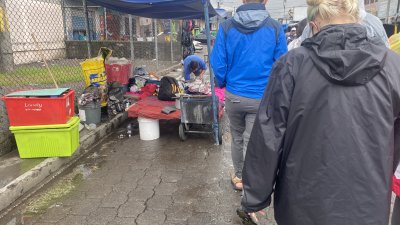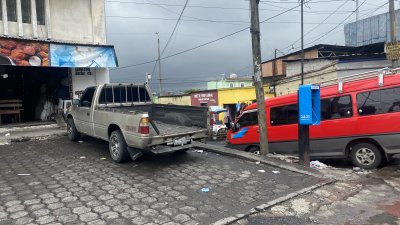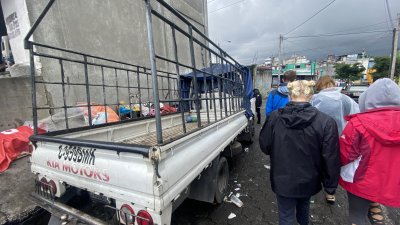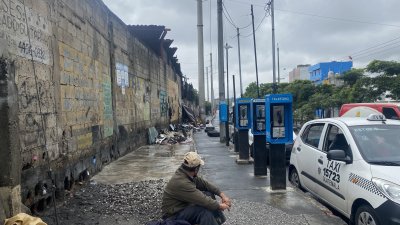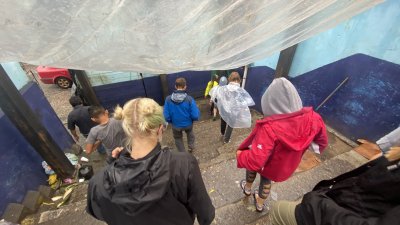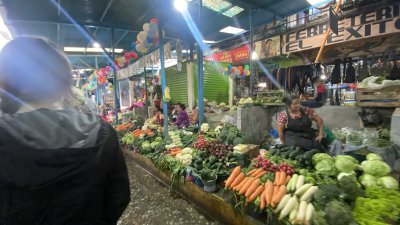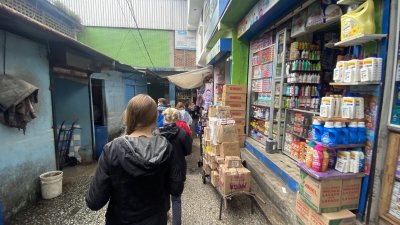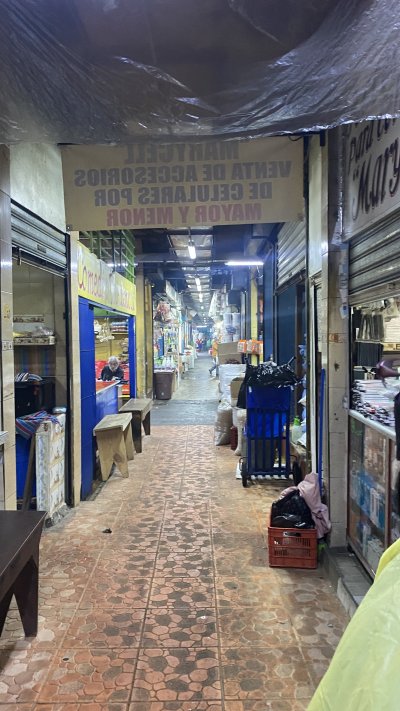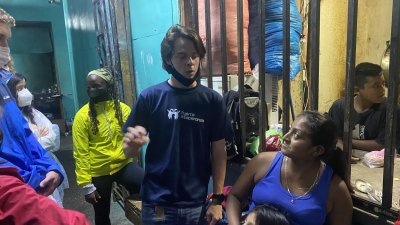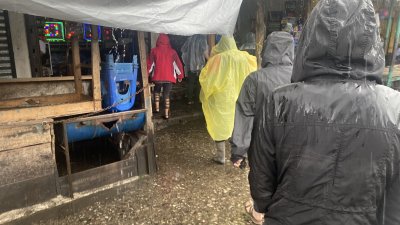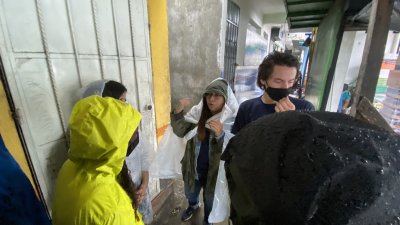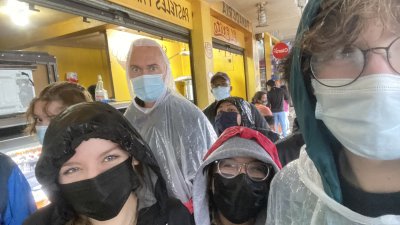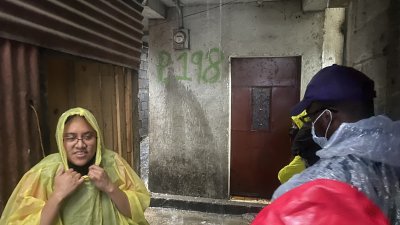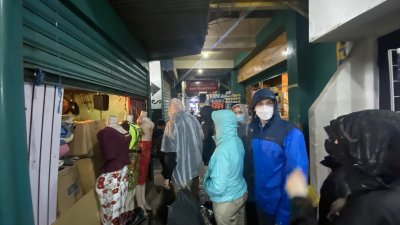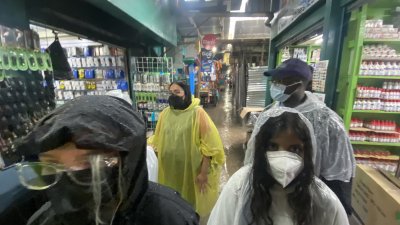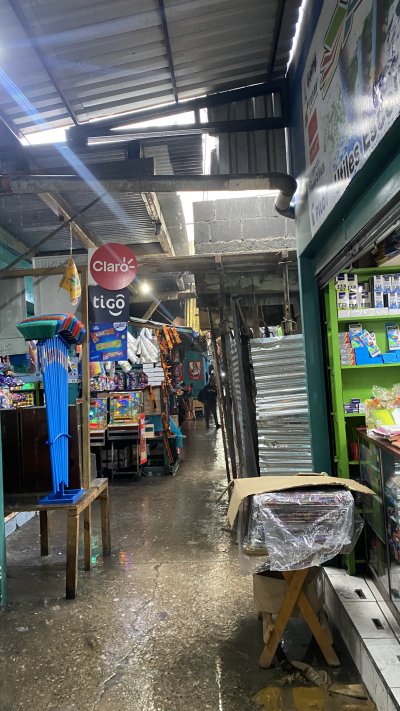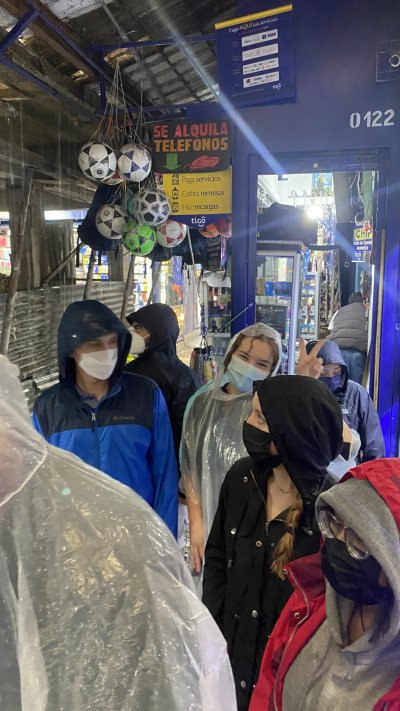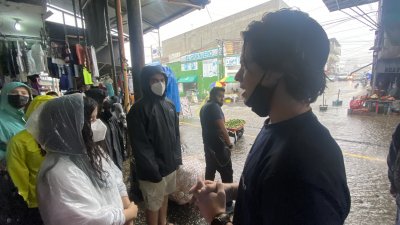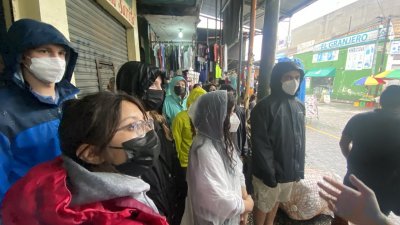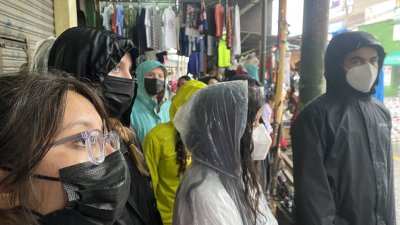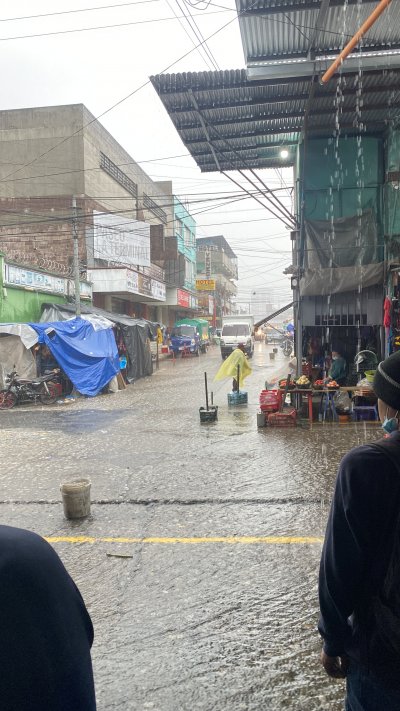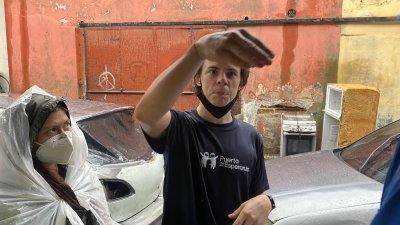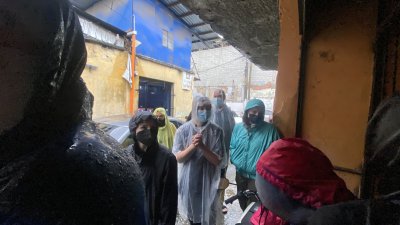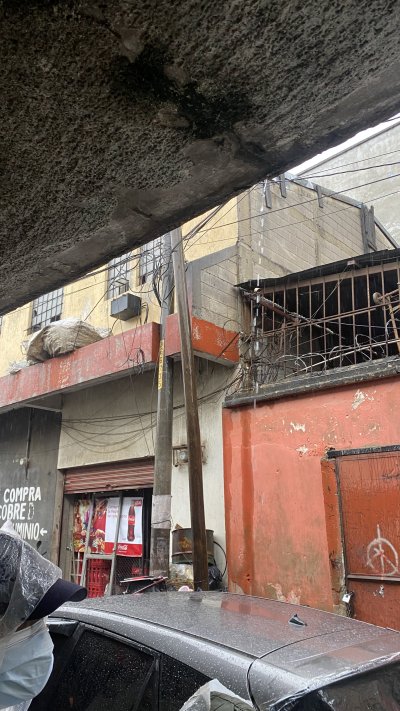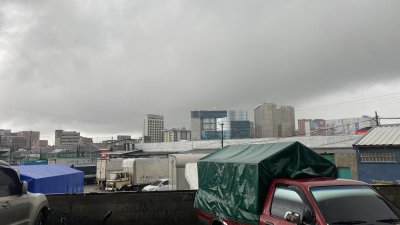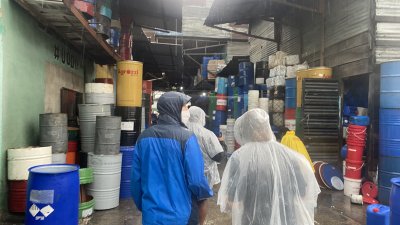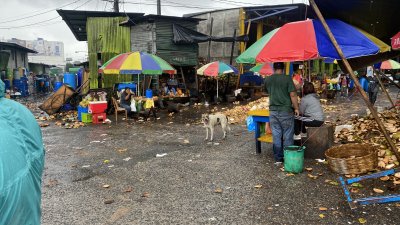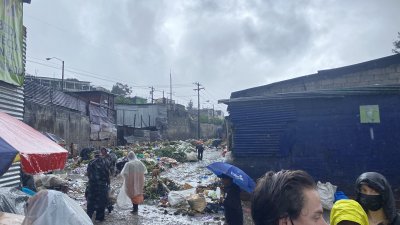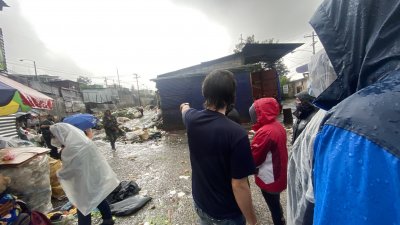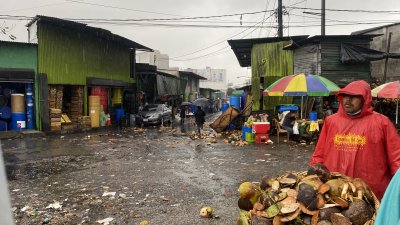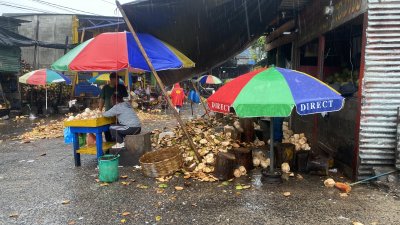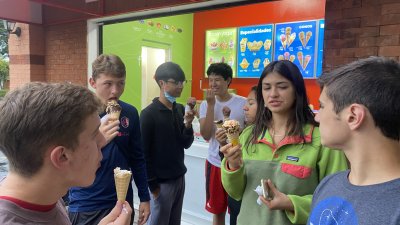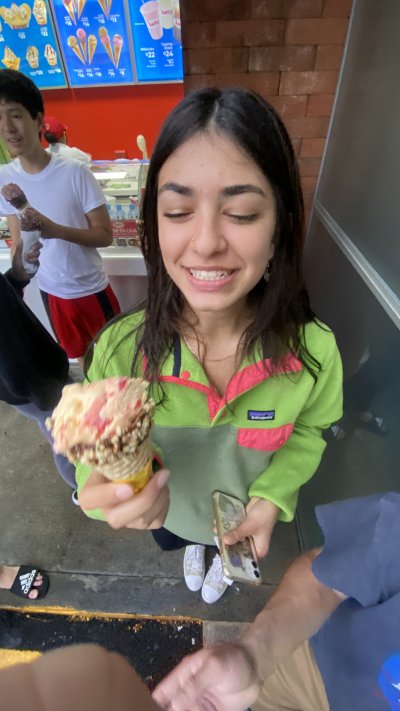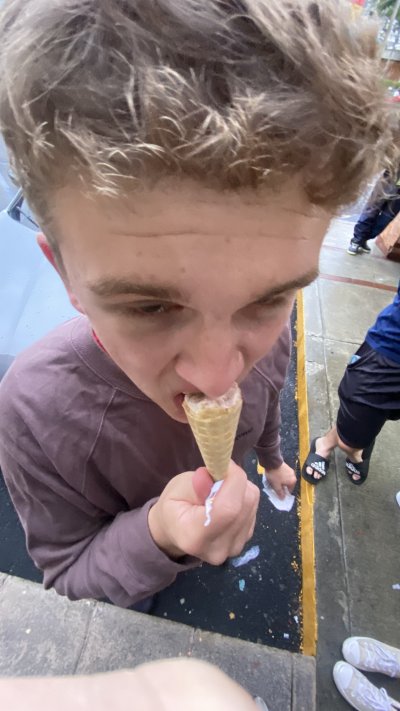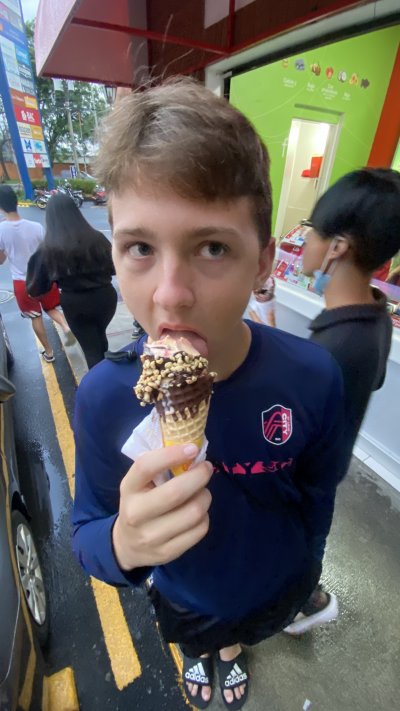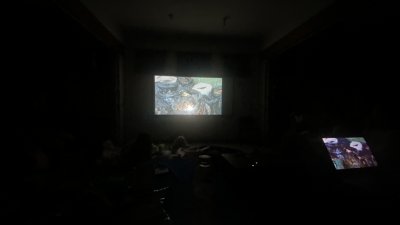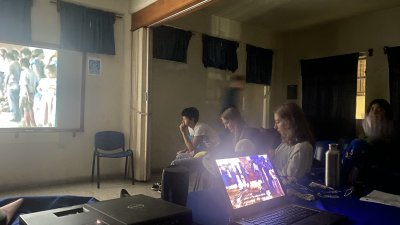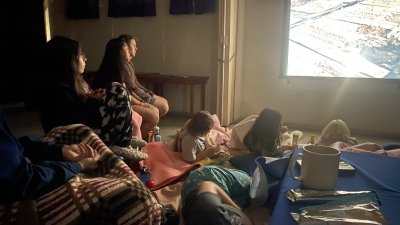A Rainy Day in The Terminal Market
We’re officially a week into our 2022 SSTT program! Time has been flying by here in Guatemala. As we continue our routine of waking up, attending worship, and going to class, it’ll continue to move faster than we might want.
After breakfast and our daily worship, our third class was in session. Felix led the class with a refresher on the core themes that we would cover: violence and lament, justice and peace, and power and privilege and service. Felix also incorporated various theological concepts that may have challenged our students. The majority of today’s conversation was built around the Beatitudes (Matthew 5: 1-12) as an introduction to the Sermon on the Mount. There was also a strong suggestion of sharing the gospel through indirect methods. For Felix, it was transcending linguistic boundaries in order to share his own cultural experiences and faith. Methods of sharing the gospel or Jesus’ teachings in general can be up to one’s own interpretation such as Felix’s. For some of our students it seems to include music, dance and art.
In between our two class sessions today, students enjoyed a snack similar to that of an empanada, filled with a sweet and savory filling. The bread was lined with an orange coloring similar to sweet potato bread and the powdered sugar that topped the pastry coated the faces of our scholars.
Our second class session discussed the social context within Guatemala, surrounding the nature of various ethnic groups such as the Xinca, Garifuna, Maya, and Ladino. We led with a quote from Oscar Romero which states, “The true protagonists of history are those who are most united with God because with God’s viewpoint they can best attend to the signs of the times, the ways of providence, the building of history.” We discussed the history of Catholicism within Guatemala as well as the colonial roots within the National Palace. Felix also underlined the layout of the Plaza that we had explored yesterday, emphasizing the nature of how the cathedral and palace were placed adjacent to one another. This allowed both the political and religious powers to remain in close proximity, with the mercado nearby to represent economic powers as well.
Our afternoon field trip involved going to the Terminal Market, a market for local residents in one of the more impoverished zones of Guatemala City. Prior to arriving at the Terminal Market, we spoke with members of Puerta de Esperanza, an outreach program located half a mile outside of the Terminal Market, aimed at helping youth with their academic studies. From Puerta de Esperanza we headed to the nearby Terminal Market. Vendors lined the streets and snaked though narrow alleyways. The difference between this market and others that we had visited was quite evident. Puerta de Esperanza representatives, including Mennonite Central Committee SALT volunteer Charlie Welch, stressed that the conditions of the Terminal Market and the residences that housed merchants there were in part due to the government’s lack of funding and neglect of systemic oversight into the community. For those who live there, it lies well below the poverty line.
As we poorly attempted to dodge the drenching rain, we visited a few families that work with Puerta de Esperanza. They shared their struggles and experiences within the Terminal Market and told us how Puerta de Esperanza aided in their struggles. Our time in the Terminal Market was joined by an onslaught of heavy rains and streams of water along the roads. Thanks to a “Poncho in a Plastic Ball” that our SEMILLA leaders purchased for us, we stayed dry for a while. But needless to say we were soaked by the time we left the market.
As we progress through this journey in Guatemala, our students continue to make analytical observations of their time here. In her journal reflecting on yesterday’s visit to the Metropolitan Cathedral (quoted with her permission), Soleil noted that she had observed a sign encouraging people not to trust the vendors in the courtyard beyond the church doors, which reminded her of the story of Jesus flipping over the merchants’ tables at the temple. Soleil noted that historically the church in Latin America (and elsewhere) has propped up the political and economic elites, and this was “a larger-scale version of what Jesus was reacting to.” She continued: “The use of religion as a justification for and a tool of colonization by the Spanish and other Europeans for the ultimate purpose of giving wealth and power seems to be a much larger form of blasphemy than small-scale vendors who are trying to make a living in the system set up by these colonizers.” This is quite true, and an important part of analyzing what we are experiencing. Soleil’s reflection on the effect of colonization plays a part in the systemic poverty that we observed within the Terminal Market. At the same time, the founders and volunteers at Puerta de Esperanza clearly are motivated by their Christian faith and their desire to serve those who are desperate.
We finished off the night by watching “Finding Oscar,” a film that describes a forgotten massacre during the Guatemalan civil war, and the search for one of the only survivor spared by the soldiers responsible for the slaughter of an entire village. The film documents the journey to find Oscar and uncover the history behind the massacre.
Tomorrow we hear from a guest MCC speaker and embark on our second contrast tour to Cayala Mall, a radical contrast to what we observed today on our journey.
-Alexander Koscher
